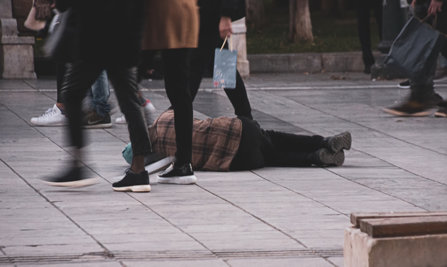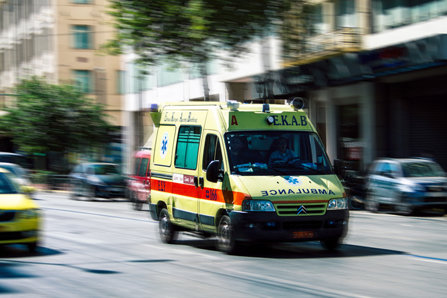The Prominent Role of Sisa Addiction Combined with Economic Crisis in Greece

As Greece reeled with economic downturns and austerity measures during much of the early-2000s, some Greek residents turned to drug use as a coping mechanism for hard times. Throughout the crisis, one drug rose to prominence among Greek drug addicts. Called “Sisa,” this drug is made from methamphetamine chemicals and filler ingredients such as battery acid, engine oil, shampoo, and cooking salt.
The drug is toxic and devastating, and while some of the economic crises and austerity measures that contributed to dire conditions and drug use in Greece have since relaxed, drug addiction does not go away simply because the economy improves slightly. One could say that socioeconomic conditions are turning around in Greece, but for the thousands of residents addicted to drugs, they’re still in daily crisis.
What Is Sisa?
Sisa is quite harmful to human consumption, but the effects it produces in users is compelling, often leading them to seek out the drug despite the serious toll it has on their bodies. The basic ingredient of the drug is methamphetamine, but different batches of the drug will also include battery acid, various machine oils, and cooking ingredients like salt. The drug is being called Greece’s “austerity drug,” because it can be concocted by using simple household ingredients and it is consumed mostly by the poor, severely impoverished, and homeless in Greece.
“You see 50- to 60-year-old guys addicted to sisa. Men, women, wherever you look, sisa. Everywhere in Athens: alleys, squares, smoking all day long and looking for more sisa. You don’t hear about heroin anymore, or weed or pills. This is because sisa is a cheap drug… For me sisa is the drug that will destroy Greece.”
One addict interviewed by Vice reporters on the streets of Athens had this to say about sisa. “It melts you. It hits others in their nervous system. It creates wounds on the body that don’t heal, they never close. It starts like a pimple and instead of healing, it grows. Even the user’s face is full of holes.” Another addict, also interviewed by Vice reporters, said, “You see 50- to 60-year-old guys addicted to sisa. Men, women, wherever you look, sisa. Everywhere in Athens: alleys, squares, smoking all day long and looking for more sisa. You don’t hear about heroin anymore, or weed or pills. This is because sisa is a cheap drug… For me sisa is the drug that will destroy Greece.”
Sisa, Not to Be Confused with Shisha
The drug “sisa” should not be confused with “shisha.” The spellings are quite similar, but the drugs are very different. Sisa is quite harmful, as defined and described in the previous section. On the other hand, Shisha is the Arabic word for the type of pipe used to smoke flavored tobacco, also called a hookah. The term shisha is also used when referring to the tobacco used in a hookah pipe. While there are some obvious health harms in consuming shisha tobacco (as there are in consuming any kind of tobacco), shisha is not the same, or even similar, to sisa.
How Sisa Rose to Prominence Among Drug Users in Greece

There is no doubt that the rise of sisa addiction in Greece is connected to the country’s economic crisis. As one author of a research paper on the subject put it, “It is appears that the last two years drug users become more self-destructive, they take less protective measures especially in the region of Athens where the effects of economic crisis are more obvious with high unemployment rates and rapidly increasing levels of homeless.” That is just one brief quote, and the entire paper examined the connection between a gradually worsening nationwide economic situation and a gradually worsening drug crisis that occurred at the same time.
There are many reasons why individuals turn to drugs as a coping mechanism. Almost always, a person begins using drugs because they don’t know how to face a hard life crisis with a constructive, solutions-based approach. So they turn to drug use to numb the pain of that life crisis. And while life crises come in many forms and under many guises, economic hardship is one of the most common and devastating life crises a person can face. For the Greek residents who turned to sisa as a form of escapism, it was likely that the crumbling of the nation’s economy and the austerity measures that followed helped push them over the edge (or at the very least contributed to their fall).
Sisa Is Not the Only Drug of Choice in Greece

While the spike in sisa addiction and the resulting health fallout has grabbed headlines in Greece and across Europe, sisa is not the only drug problem in Greece. According to the European Monitoring Centre for Drugs and Drug Addiction, about 4.5% of young Greek adults use cannabis. Greece also has about 14,462 opioid addicts. Throughout much of the 2000s, the nation reported over 200 overdose deaths and thousands of drug law offenses. Heroin is still the primary drug of choice for those who seek treatment, with 55% of treatment admissions being for heroin addiction.
Another report, this one also done by the European Monitoring Centre for Drugs and Drug Addiction, found that approximately 8.6% of the Greek population has used drugs, a relatively high drug exposure rate. The more Greek residents are exposed to drugs, the more people will be at risk for developing drug addiction.
Alcohol Consumption Is Also a Problem
Drugs are not the only addictive substance that have created serious problems for Greeks. Alcohol misuse is also a problem. Greek residents consume about 10.5 liters of alcohol per year, just behind Russia and well ahead of the United States and many other developed nations. When combined with the drug abuse crisis, alcohol misuse creates further harm for residents.
The Greek Addiction Crisis Creates Another Health Emergency in the Spread of Communicable Diseases

Another factor that has amplified the harm among Greek addicts is the spread of infectious illnesses amongst addicts. According to a local news source based out of Athens, 79% of 1,000 Athenian drug addicts brought into a health program for a survey had been exposed to hepatitis C, and 17% lived with HIV. Of the 1,000 addicts, 82% said they used drugs intravenously, 33% admitting to daily use.
Of the 1,000 Athens residents surveyed, 26% said they’d shared a syringe with another addict, needle sharing being one of the common ways in which infectious diseases are spread. Only 22% of the 1,000 had ever entered a rehabilitation program.
Treatment Saves Lives
Like much of Europe, Greece will most likely implement harm reduction campaigns to address its drug crisis. The International Society of Substance Abuse Professionals listed harm reduction as one of the pillars of Greece’s public health response to addiction. Quoting their report, “With regards to harm reduction, [Greek] interventions include the provision of clean needles and syringes, condoms, printed health education and information materials, and training in safe use and first aid for drug users.”
While harm reduction programs are implemented in good faith and are backed by an honest effort to curb deaths and serious health repercussions, harm reduction is by no means a full solution to any drug crisis. Addiction treatment is the solution to saving the lives of addicts and putting them on a path to long-term recovery and a lifetime of freedom from drug abuse.
Drug addiction does not have to be a life or death crisis for Greek residents. Harm reduction does not have to be the only avenue. It is a resource that delays risk and never solves the problem. If you have a family member or loved one in Greece who is addicted to drugs and alcohol, get them help at a qualified drug and alcohol treatment center as soon as possible. Please don’t wait until it is too late.
Sources:
- https://www.vice.com/en/article/av4v5e/austeritys-drug-of-choice-000757-v20n5
- https://www.emcdda.europa.eu/system/files/publications/11333/greece-cdr-2019_3.pdf
- https://www.emcdda.europa.eu/attachements.cfm/att_34618_EN_NR2005Greece.pdf
- https://worldpopulationreview.com/country-rankings/alcohol-consumption-by-country
- https://greekcitytimes.com/2018/10/04/alarming-surge-in-drug-addiction-across-athens/
- https://www.issup.net/knowledge-share/country-profiles/greece


